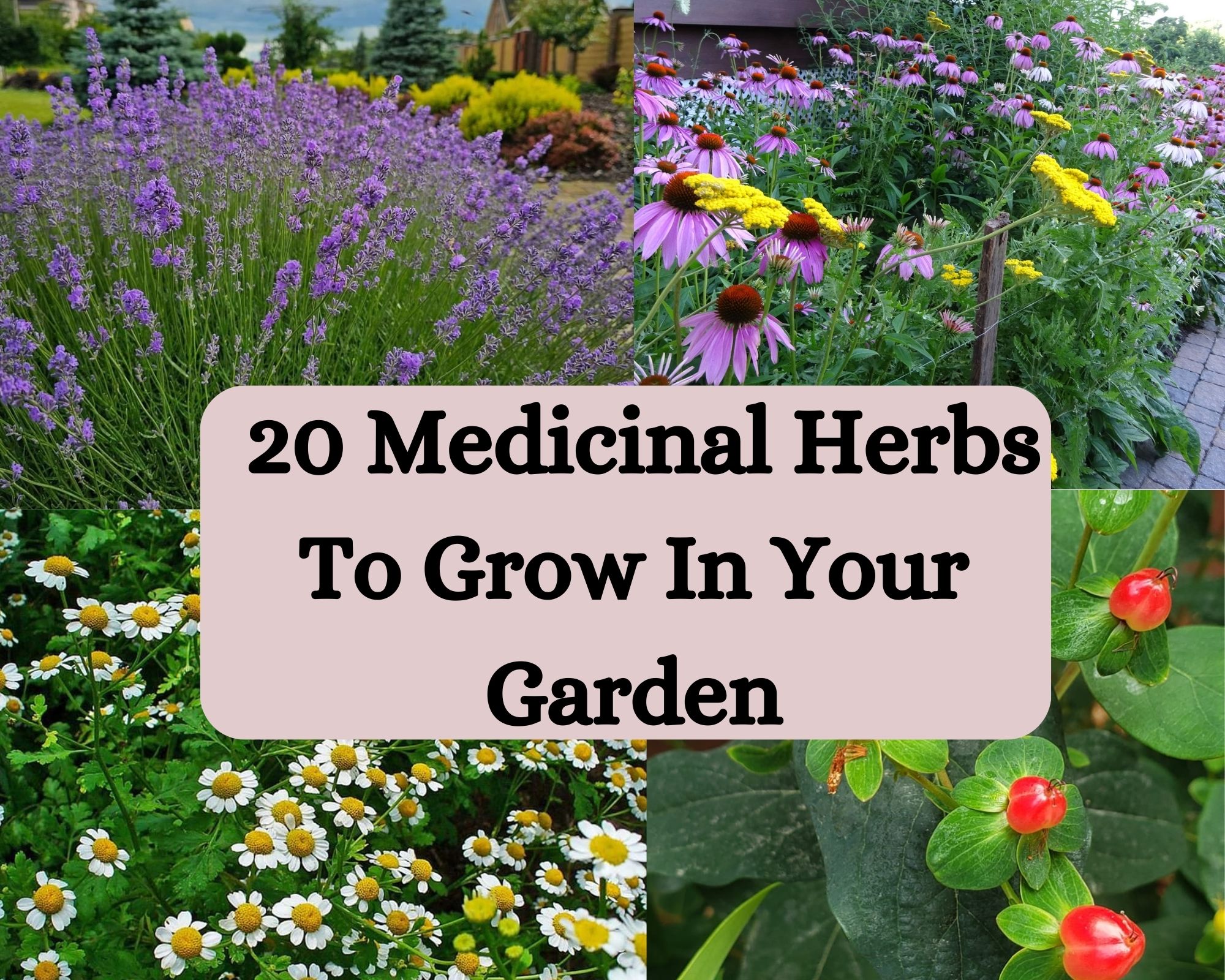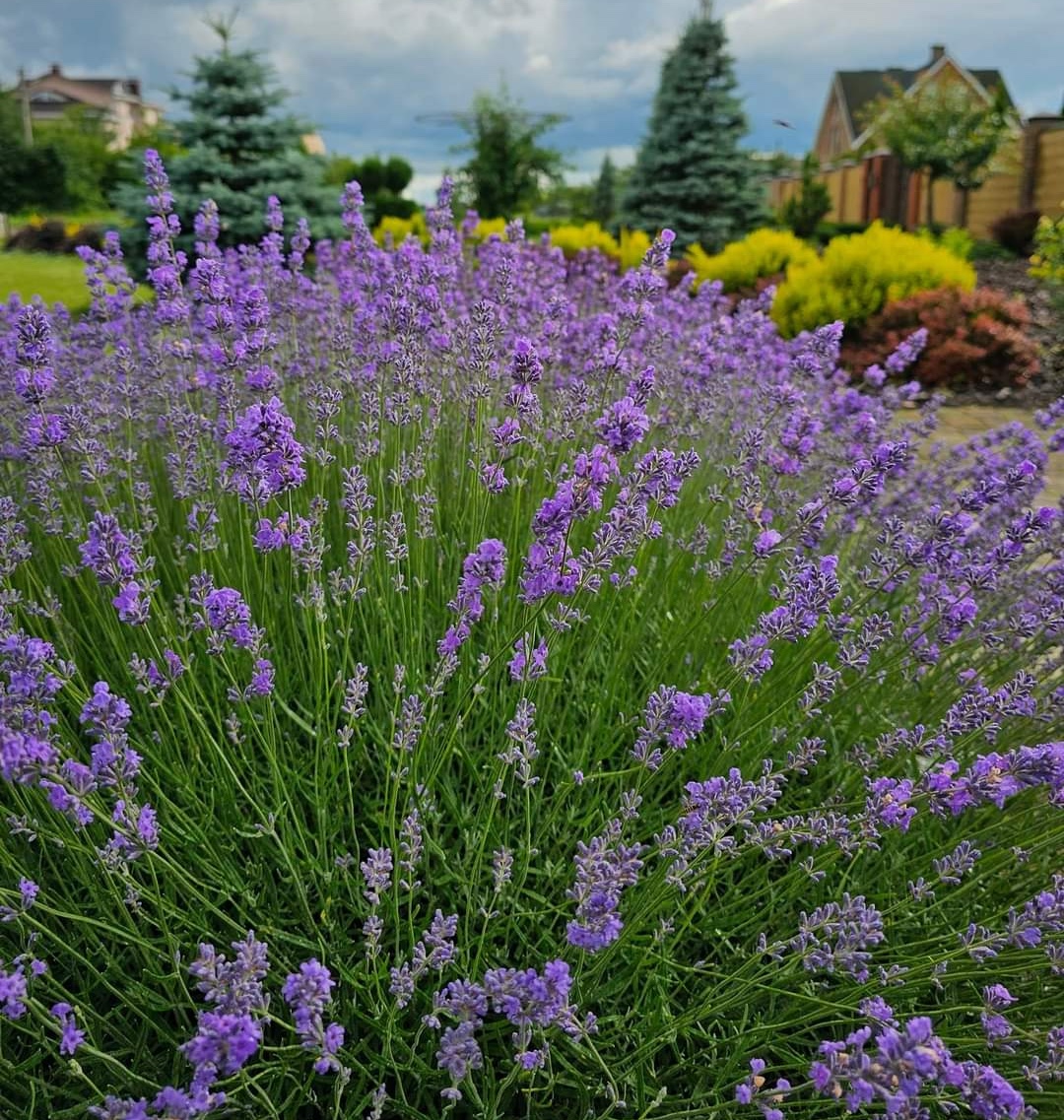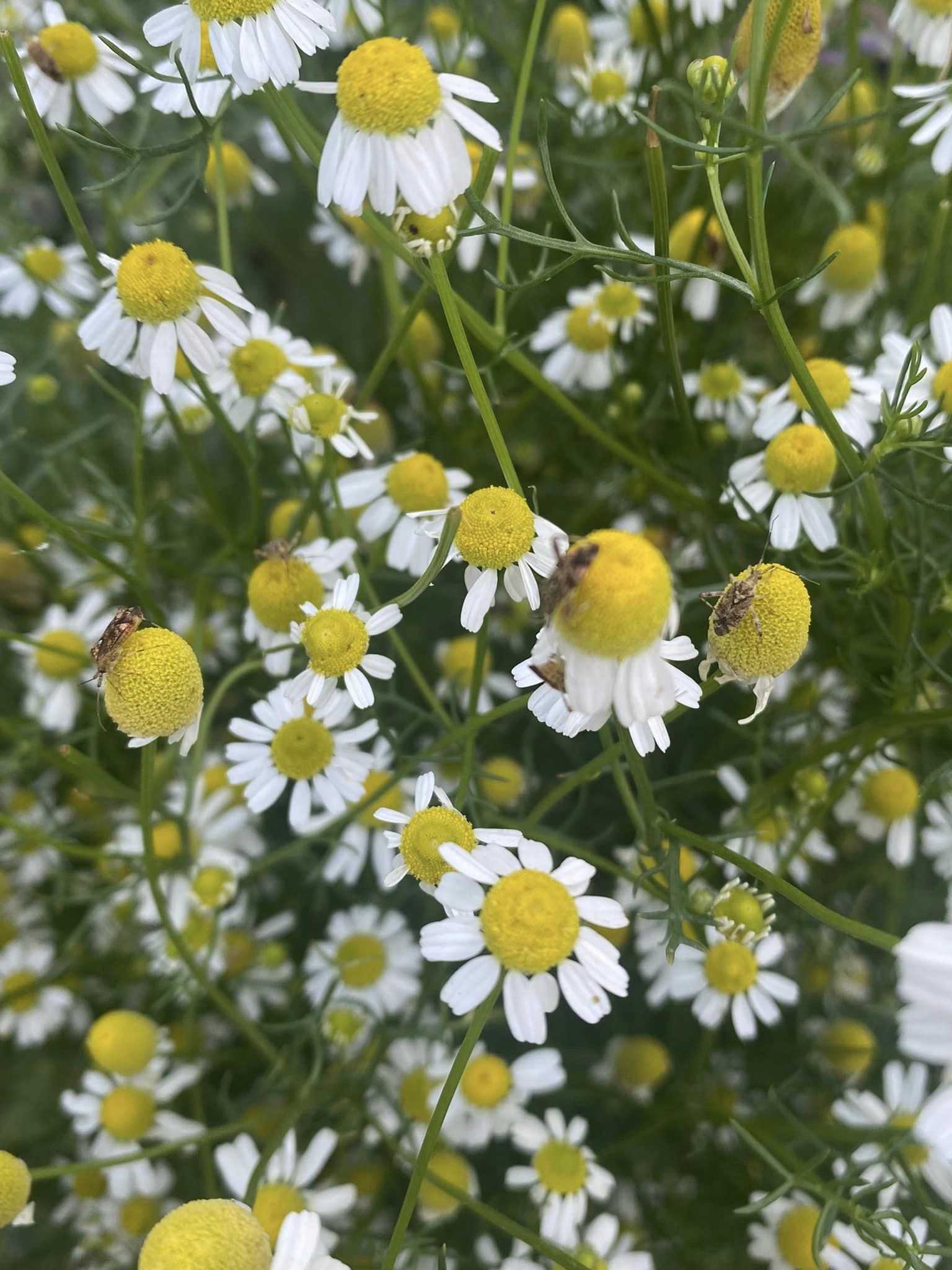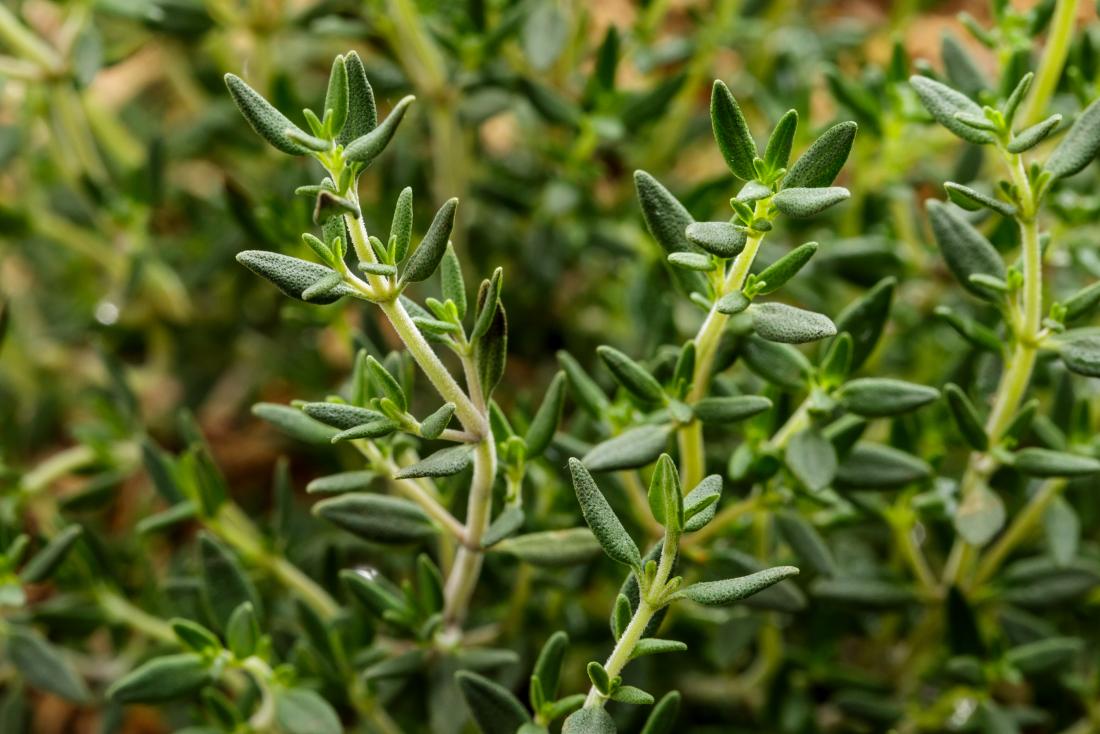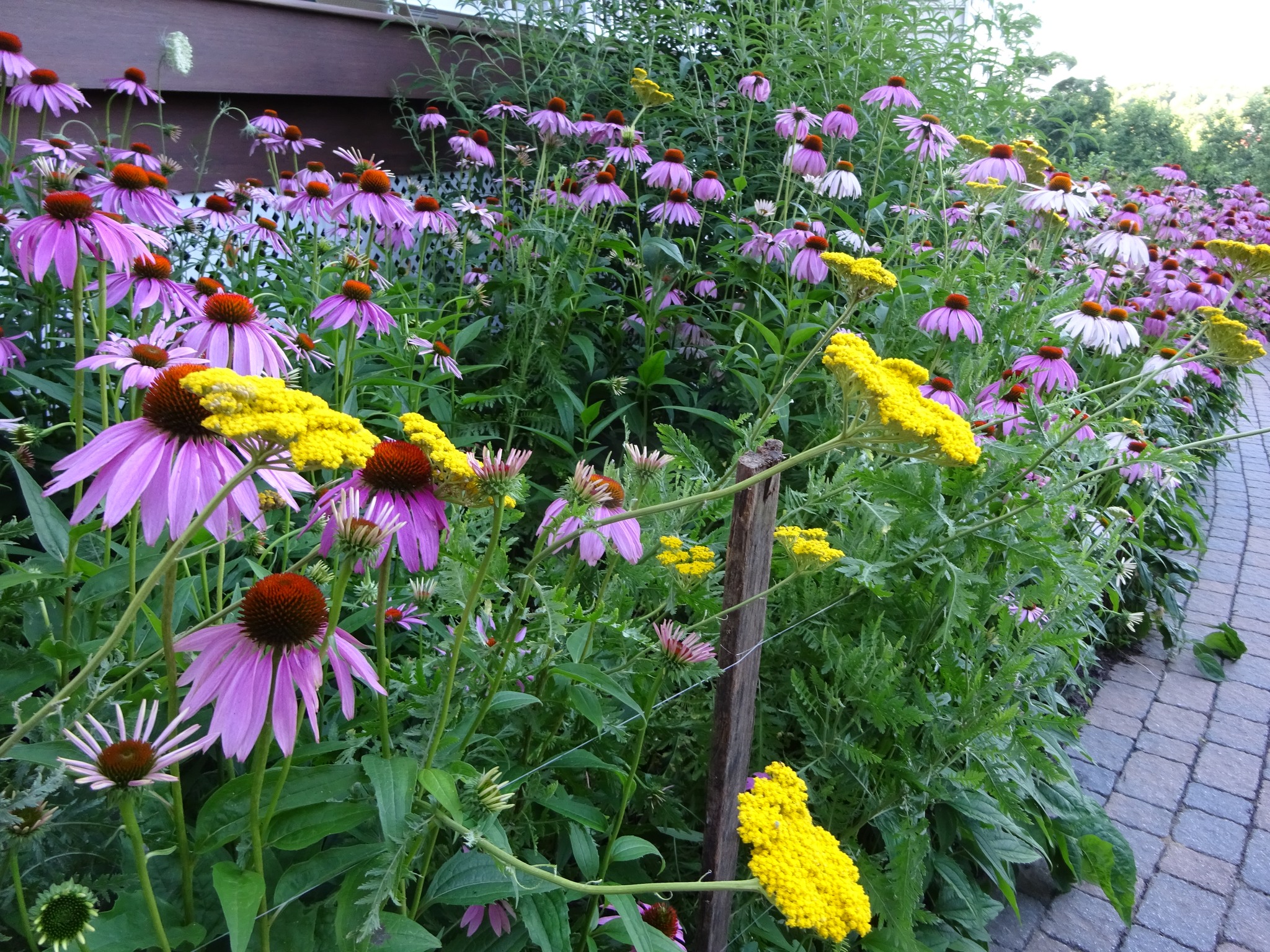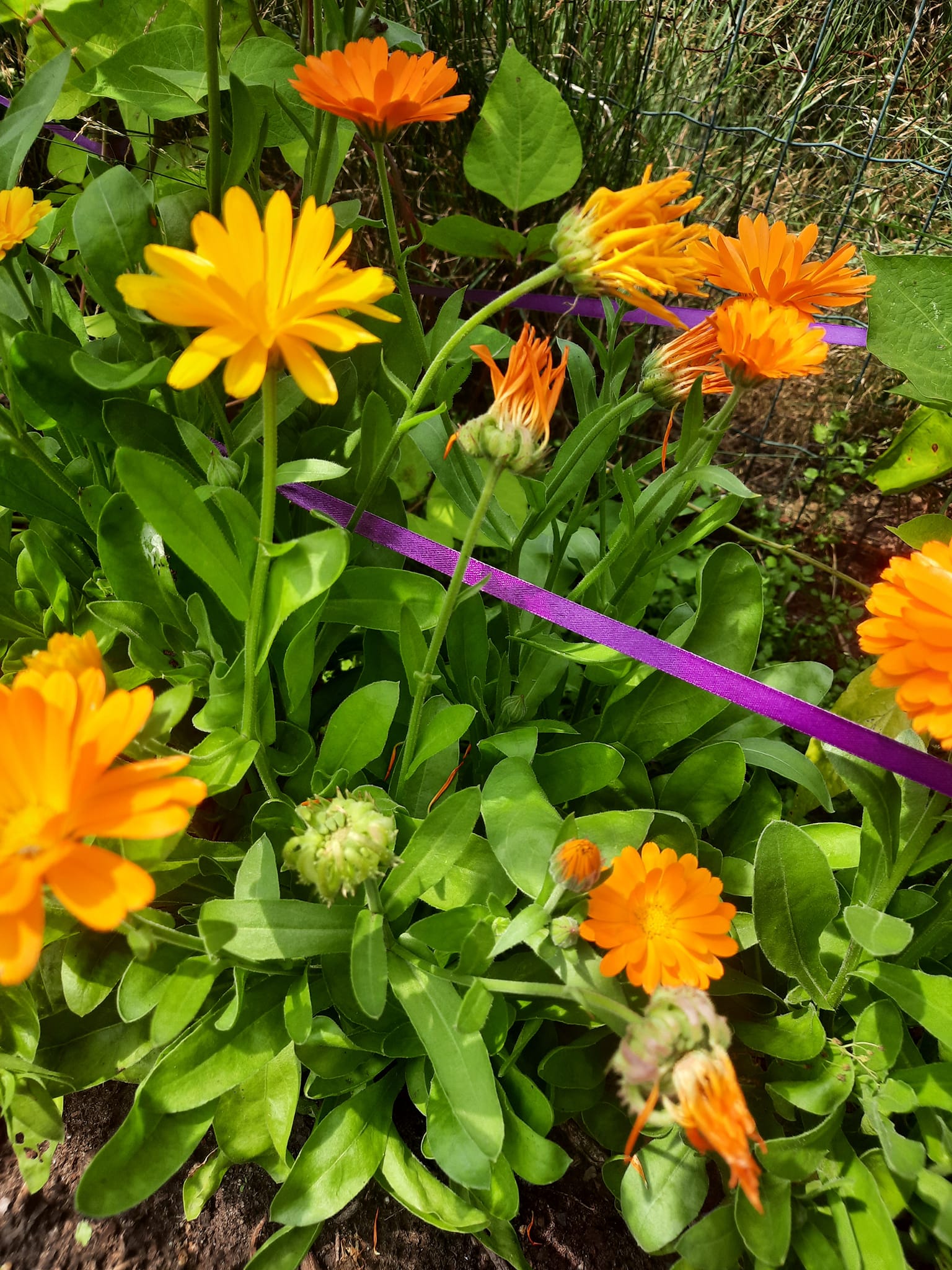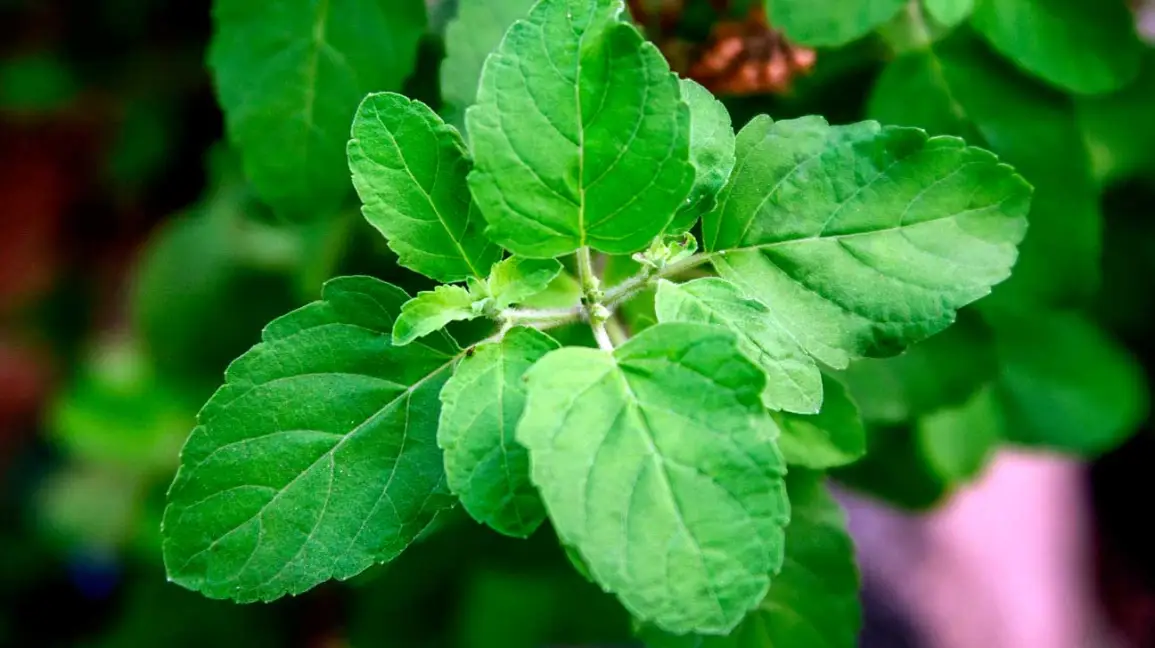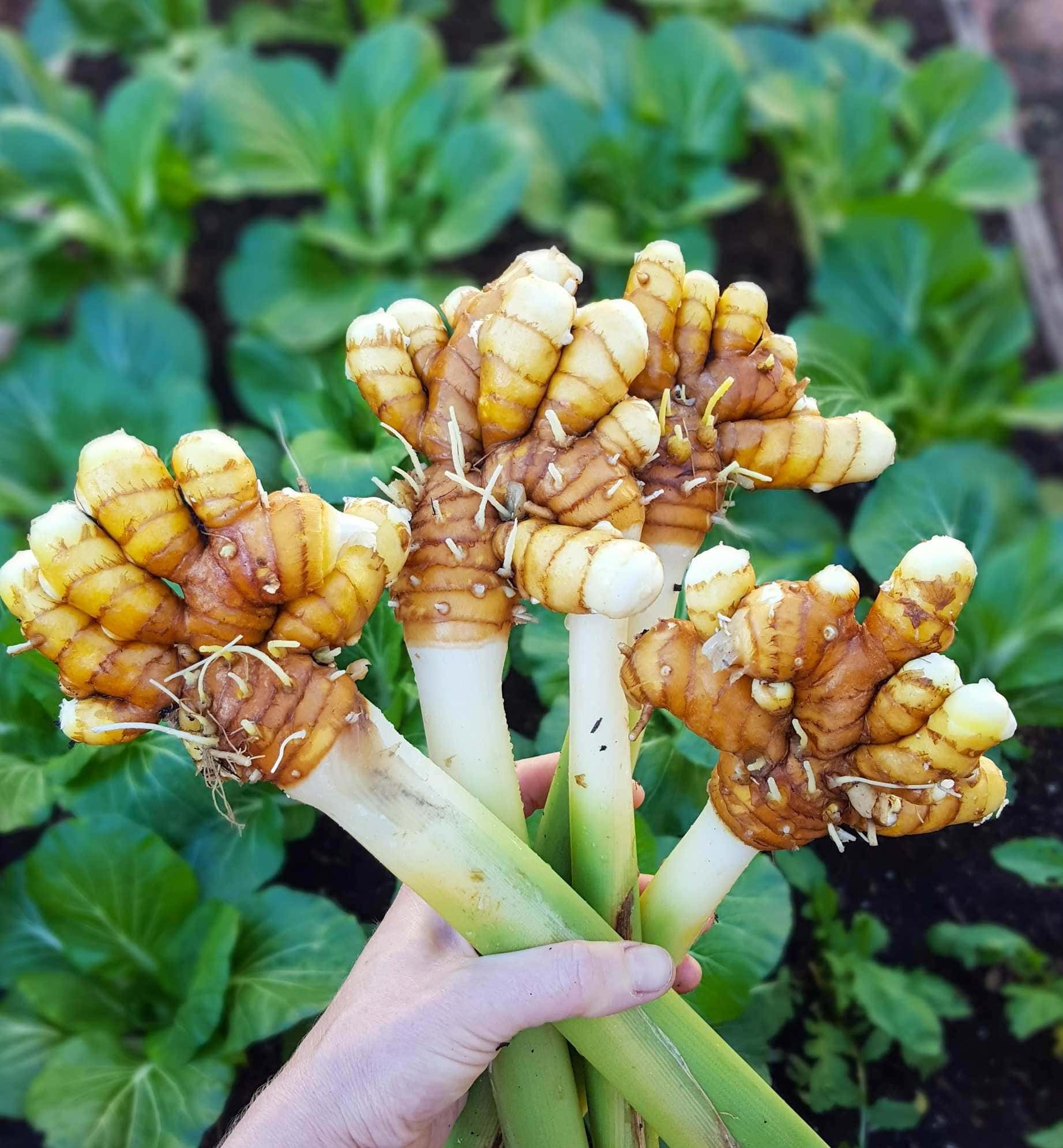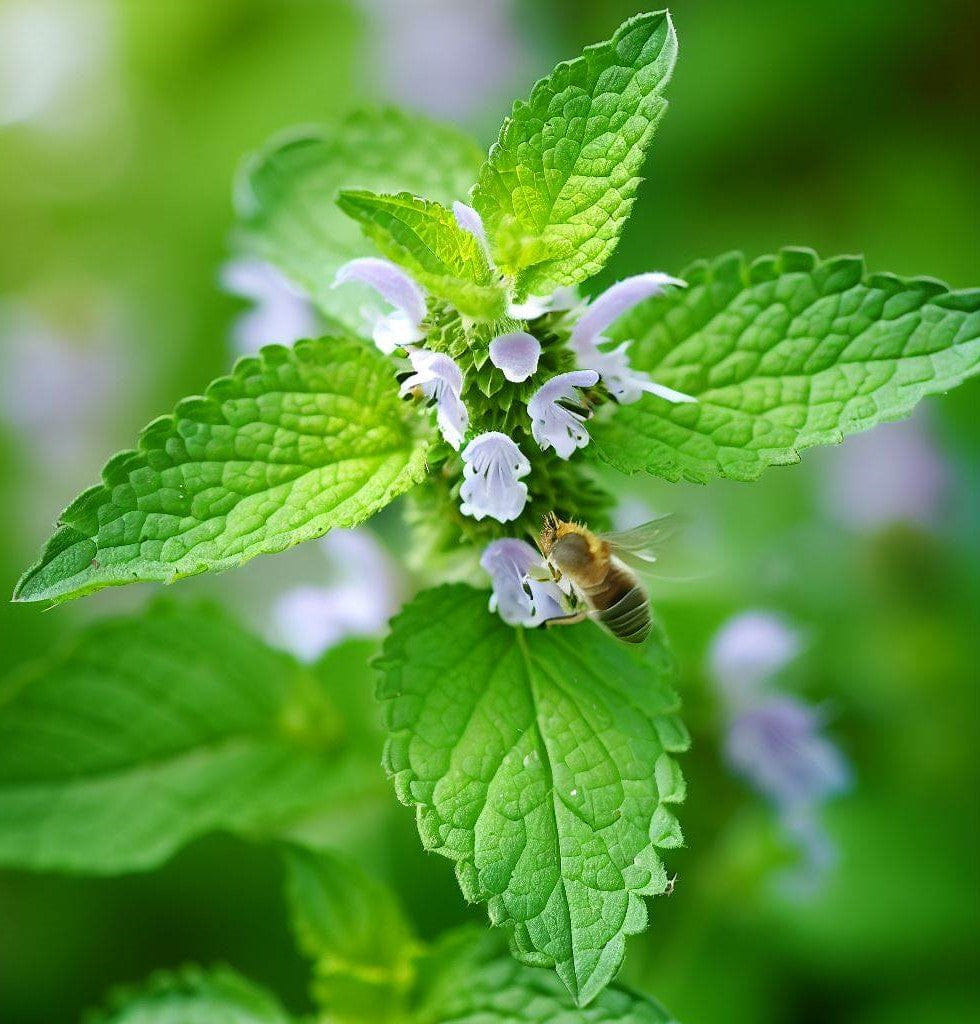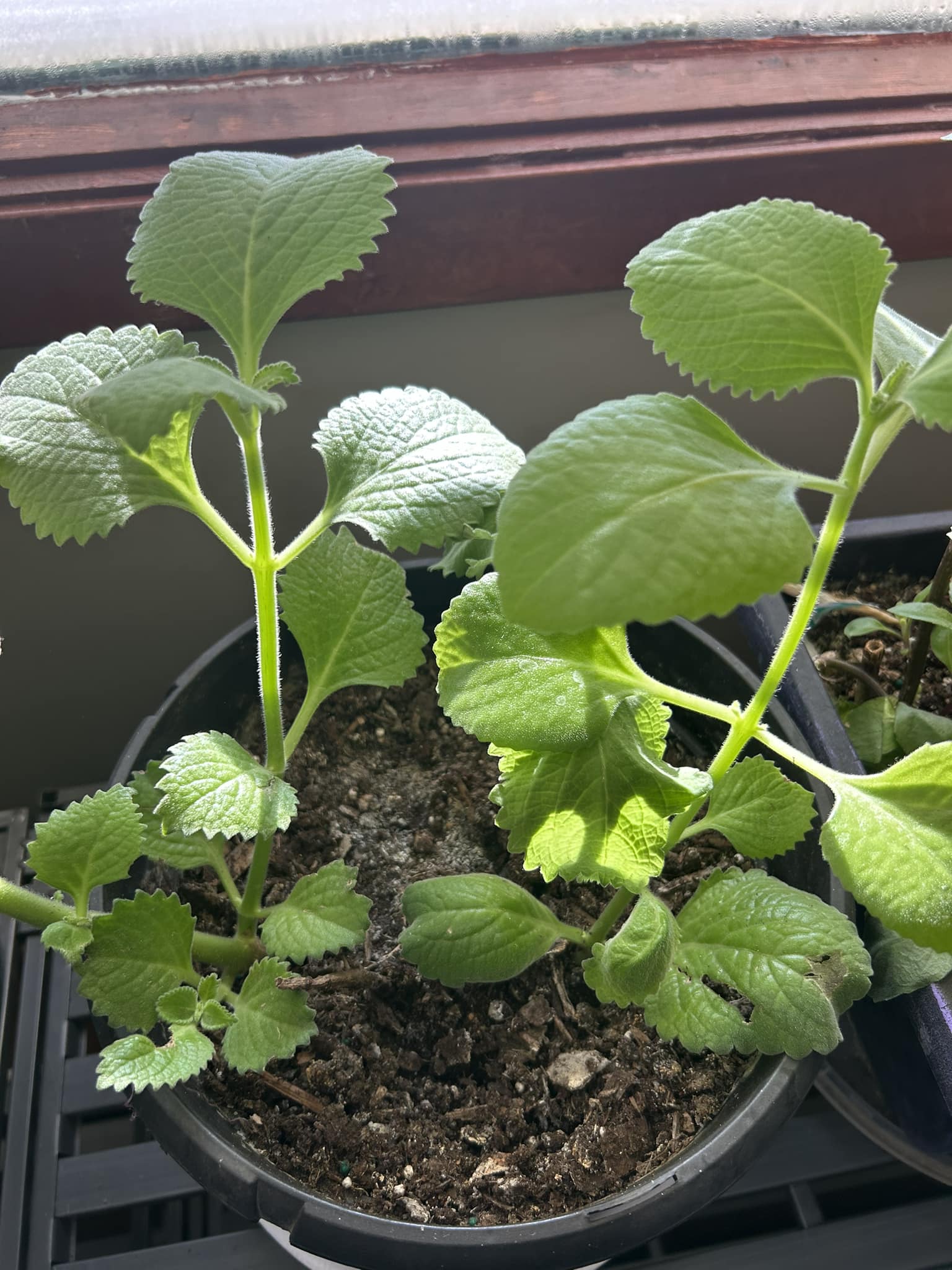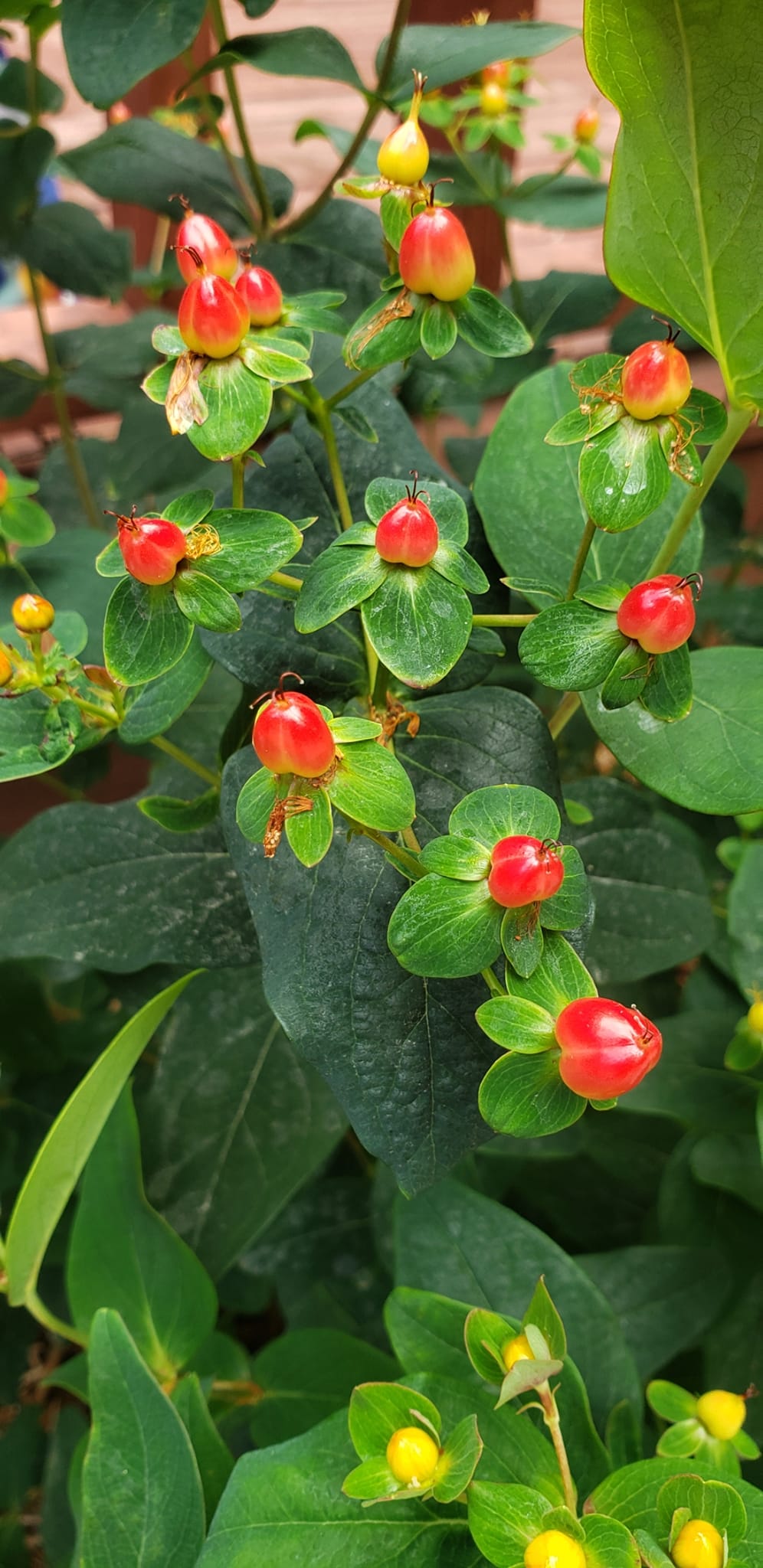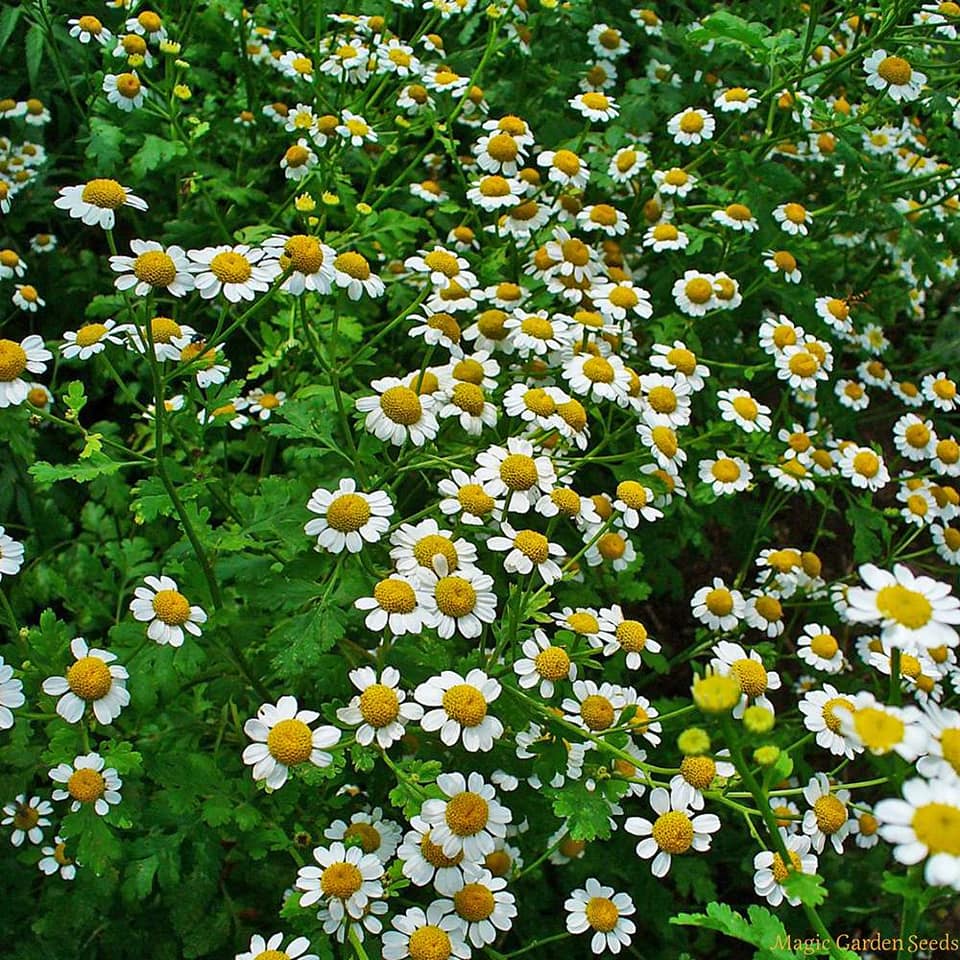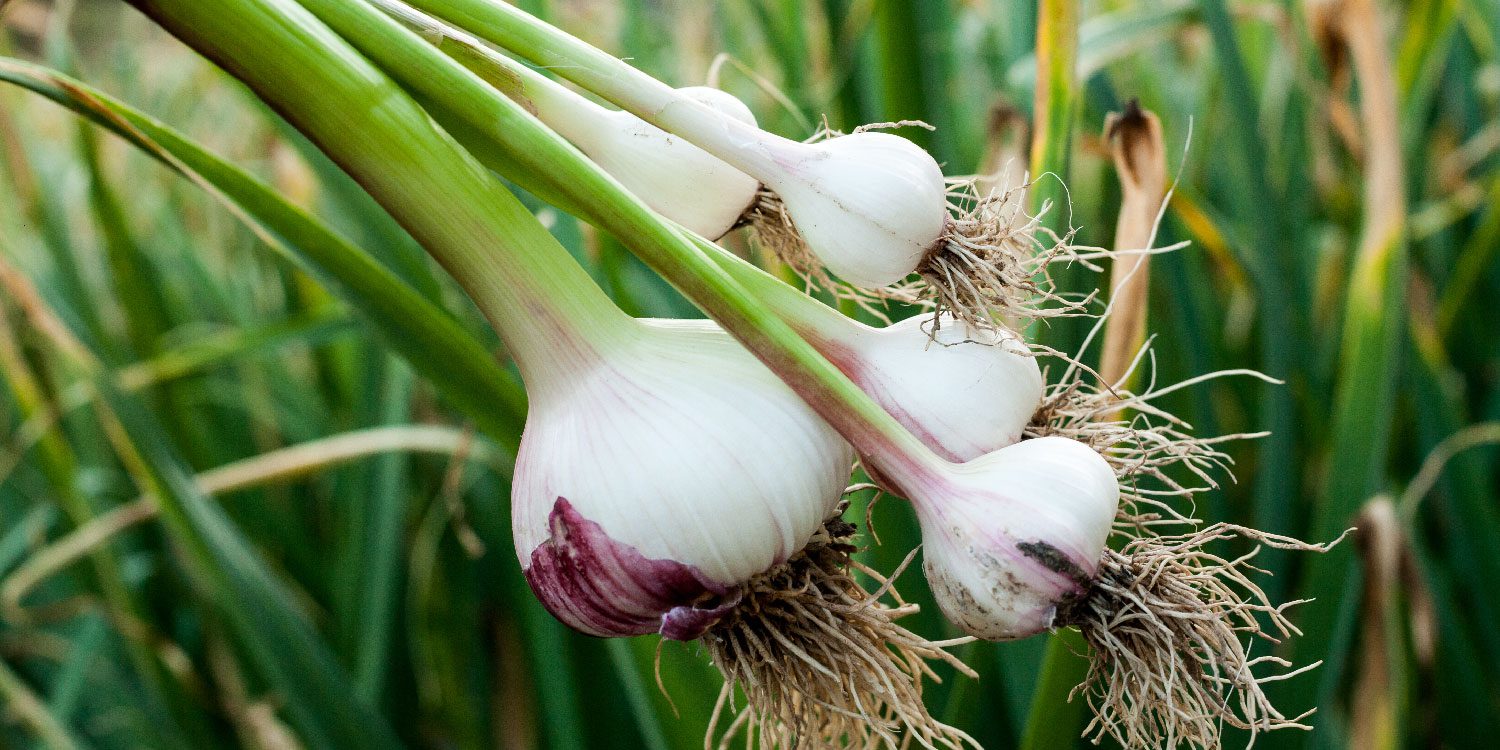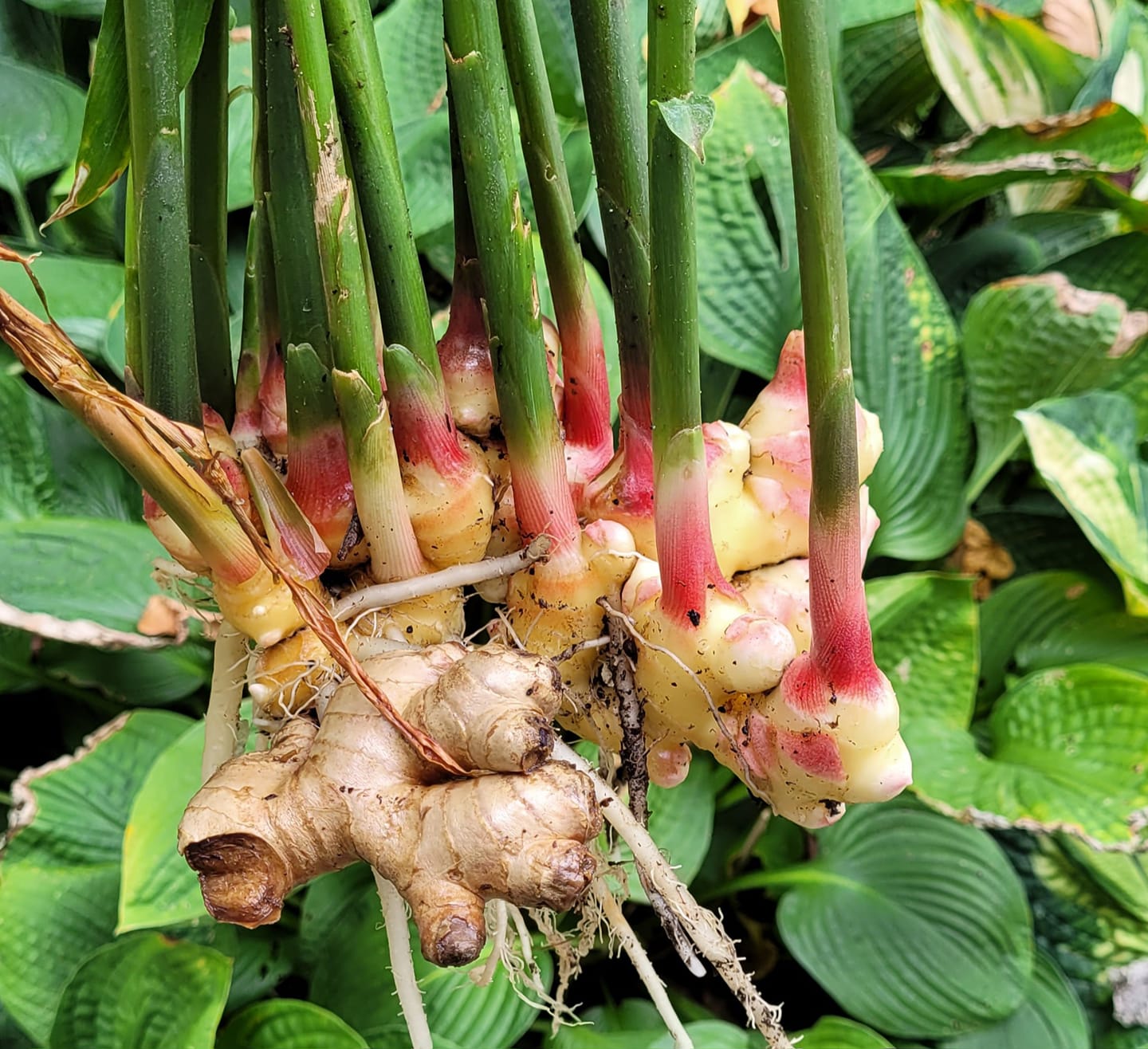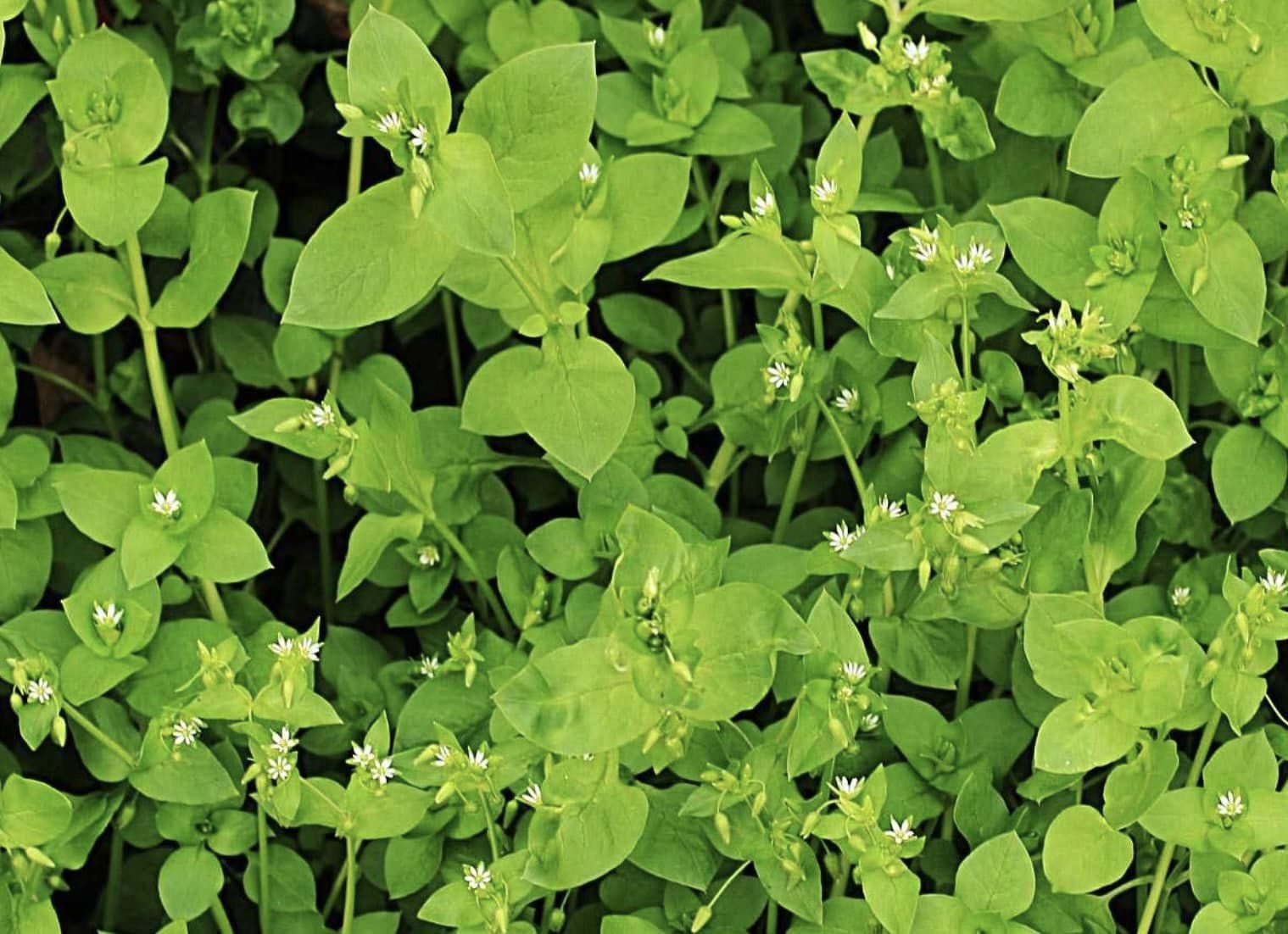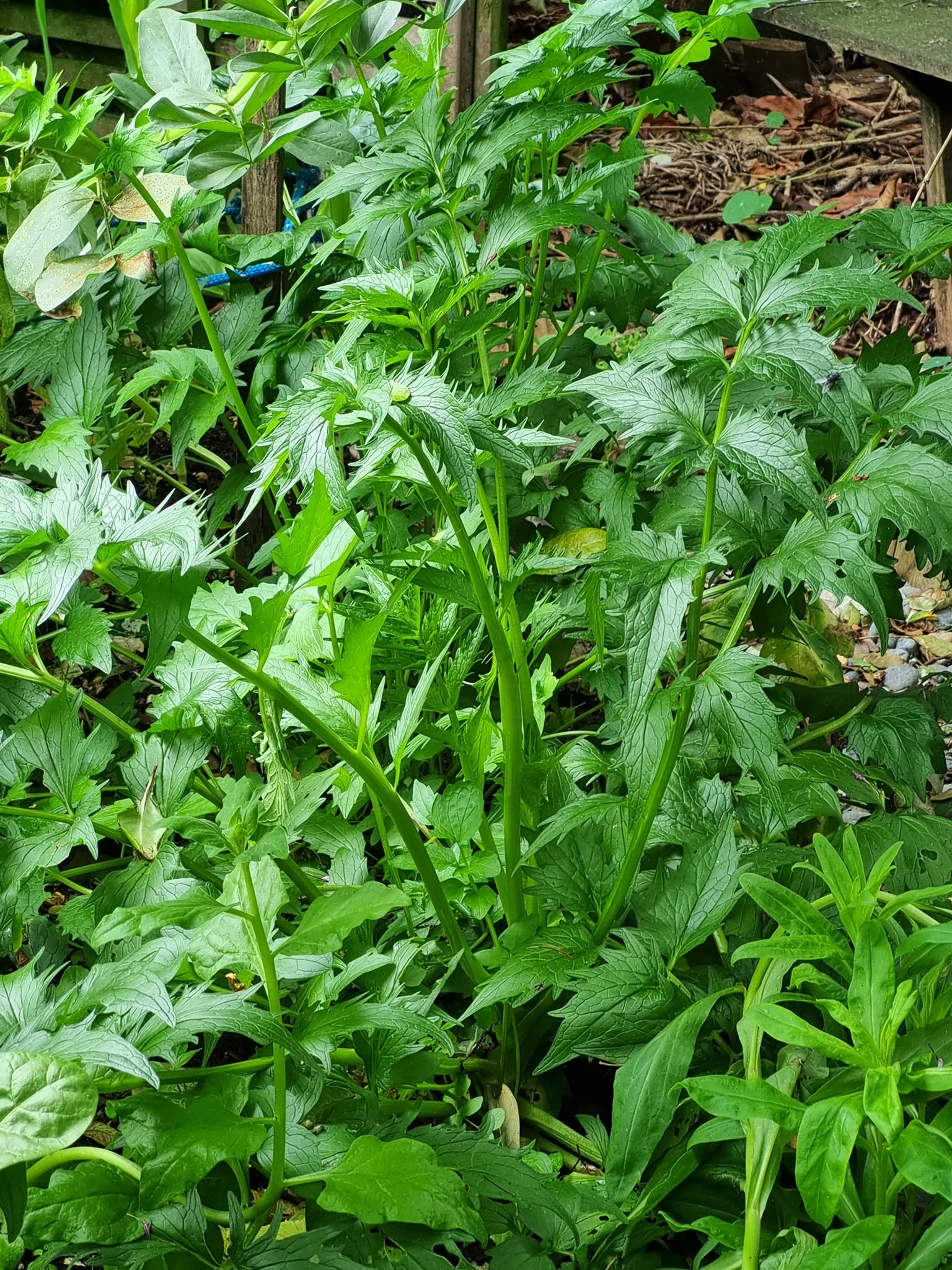The age-old practice of harnessing nature’s power by using specific plants for medicinal purposes has found renewed appreciation in this century. Herbal medicines have fewer side effects, are versatile, readily available and affordable, more environmentally sustainable, and generally align with a holistic approach to health.
Do you find this appealing? Then why not introduce some medicinal herbs to your garden? Your garden is more than just an assortment of plants. On the contrary, this living, breathing space can hold the secrets to healing different ailments and contributing to your overall well-being.
Let’s explore a selection of medicinal herbs that are easy to cultivate and offer many health benefits.
20 Medicinal Herbs To Grow In Your Garden
1. Lavender
This stunning, versatile herb has a multitude of uses but is renowned for its calming and stress-relieving properties. Its aromatic oils have been linked to improved sleep, reduced stress, and even relief from pain.
Another upside of growing lavender is that it’s relatively easy- just ensure it receives a lot of sunlight and thrives in well-drained soil. Harvest lavender in the morning because the essential oils are highly concentrated then.
Hardiness zones: 5a-9a
Read More: The Best Companion Plants For Tomatoes
2. Peppermint
Peppermint doubles as a flavorful herb and a potent healer. Its active compound, menthol, relieves indigestion, headaches, and sinus congestion. Moreover, it has antiviral and antibacterial properties; hence, it is excellent for promoting oral health.
It’s easy to grow and spreads quickly if you let it; hence, it is perfect for container gardening. Harvest it before its flowers.
Hardiness zones: 5-9
3. Chamomile
This plant is absolutely a must-have in your medicinal herb garden, especially if you enjoy a refreshing cup of chamomile tea. Do you want to relax and boost the quality of your sleep? Have some chamomile tea before bed.
You can also apply chamomile topically to soothe skin irritations. Chamomile helps alleviate digestive issues and menstrual cramps, reduces anxiety, and helps boost immunity.
Hardiness zones: 2-9
Related Posts:
- Flowers That Shouldn’t Be Planted Near A Vegetable Garden
- Best Vegetables For Container Gardening
- Flowers to grow in your vegetable garden
3. Rosemary
Highly valued in the culinary world for its distinct flavor, this hardy, evergreen plant holds a special place in gardening. Besides its culinary uses, rosemary has medicinal properties.
It improves memory and concentration, reduces inflammation, relieves joint and muscle pain and respiratory issues, and alleviates stress and anxiety. For topical applications, infuse rosemary leaves in oil. Rosemary tea is also delightful.
Hardiness zones: 8-9
4. Thyme
There is plenty to love about this hardy perennial herb. It smells wonderful, has a distinct, earthy flavor, is aesthetically appealing, and offers some medicinal properties. So, whether you want to enhance your favorite dishes’ flavor or for medicine, consider thyme.
Thyme has strong antimicrobial, carminative, and antioxidant properties. You can consume thyme in tea or by massaging or applying thyme oil (thyme leaves and oil) directly on the affected area.
Hardiness zones: 5-9
5. Echinacea
When you notice the initial signs of illness, stimulate your immune system with echinacea, which is a powerful immune booster. This hardy herb enhances the activity of white blood cells, promoting the body’s defense against infections and illnesses.
That’s not all; echinacea reduces body inflammation, helps the body fight off colds, flu, and other infections, heals minor cuts and wounds, and promotes respiratory health.
Hardiness zones: 3-8
7. Calendula
This is not just a pretty flower; it’s a versatile medicinal herb with a rich history of traditional use and among my favorite herbs to plant. This radiant annual herb is a true gem. You can use it to nurture your skin, support digestive health, or relieve menstrual discomfort.
Create salves, creams, or balms using calendula-infused oil for skin-related issues, wound care, or as a natural remedy for dry and irritated skin.
Hardiness zones: 9-11
8. Holy Basil
Regarded as an adaptogen, holy basil, also known as tulsi, aids the body in adapting to stress and maintaining balance by supporting the adrenal glands and helping manage the body’s response to stress. Holy basil can also help soothe indigestion and minimize inflammation.
Cultivate this revered herb in sunlight, slightly acidic or neutral, well-drained soil, and prune it regularly.
Hardiness zones: 10-11
9. Turmeric
Turmeric is best known as a spice, but its uses go beyond the culinary uses. This tropical perennial plant is also a powerful medicinal herb that is increasingly gaining popularity.
Turmeric’s active compound, curcumin, is a potent anti-inflammatory agent, beneficial in joint health and relieving conditions like osteoarthritis and rheumatoid arthritis.
This herb may help aid digestion, prompt bile production, aid digestion, and alleviate indigestion symptoms.
Hardiness zones: 8-11
10. Lemon Balm
Often used in teas, lemon balm reduces anxiety, soothes digestive discomfort, and improves mood. Traditionally, it has been used to combat cold sores induced by herpes simplex.
This resilient herb can easily become a staple in your garden. Just make sure you grow it in well-drained soil and partial shade.
Hardiness zones: 3-7
11. Sage
Grow sage in your garden for some natural fragrance and medicinal value. You can treat many ailments like digestive issues and sore throats with sage.
Also, it’s an antioxidant and anti-inflammation; hence, it helps promote better digestion and the immune system.
Moreover, add sage to dishes like poultry, pork, and sausage for a distinctive, earthy flavor.
Hardiness zones: 4-10
12. Oregano
Having oregano in the kitchen is not out of the norm; in fact, it is a common spice in most homes. However, growing this perennial herb is a whole other story.
It can get out of control if you don’t manage it properly. Nonetheless, adding it to your garden offers many benefits.
It contains compounds such as carvacrol and thymol that exhibit strong antimicrobial and antibacterial properties, making it effective against various pathogens.
Hardiness zones: 4-10
13. St. John’s Wort
Are you looking for a mood-enhancing plant that helps alleviate symptoms of mild to moderate depression and anxiety? St. John’s Wort is a worthy candidate due to its active compounds- hypericin and hyperforin.
It is considered a nervine tonic- it supports the nervous system, helping calm nerves, ease tension, and promote overall relaxation.
This herb has the potential to interact with some medications, including antidepressants. Therefore, please talk to your doctor prior to using it.
Hardiness zones: 6-9
14. Feverfew
You can probably discern from this herb’s name- it helps reduce fevers. It can regulate your body’s response to fever-inducing stimuli.
Feverfew is renowned for its historical use in preventing and alleviating migraines.
Other medicinal uses of feverfew are alleviating menstrual discomfort, aiding digestion, and reducing inflammation.
Hardiness zones: 4-9
15. Garlic
Grow garlic in your garden, and when digestive issues, sore throats, flu, and colds strike, you can alleviate the discomfort and pain with raw garlic or garlic tea.
Regular garlic consumption also has cardiovascular benefits, helping reduce cholesterol and blood pressure and boost your heart health.
Moreover, garlic is a vermifuge, antibacterial, and antiseptic.
Hardiness zones: 4-9
16. Ginger
Garlic is a great addition to your garden, whether you intend to use this herb to spice up your culinary creations or as a natural remedy for various health concerns. Many cultures use garlic for its digestive, anti-inflammatory, and immune-boosting properties.
The essential parts of this plant are the rhizomes that you should wait about 8-10 months after planting to harvest.
Hardiness zones: 8-12
17. Dandelion
Yes, the dandelion is a prolific weed, but also an underestimated herb with a wide array of medicinal benefits. For instance, its leaves are rich in vitamins and minerals like vitamins A, C, and K, calcium, and iron, while the roots support liver health.
Additionally, dandelion has a diuretic effect, promoting increased urine production. Also, you can soothe skin irritations, such as eczema or minor wounds, with dandelion sap or infused oil.
Hardiness zones: 3-9
18. Chickweed
Like dandelions, chickweeds are often considered weeds. However, there’s more to this plant- its medicinal properties. It’s a good mineral and vitamin source, including calcium, iron, and vitamins C and A.
Chickweeds support digestive health and respiratory health and reduce inflammation. Their antioxidants also contribute to overall health and may have anti-aging effects.
Hardiness zones: 4-11
19. Valerian
Aesthetically, the valerian is appealing with its tall stalks crowned by clusters of delicate flowers. However, it is also a powerful medicinal herb with sleep-inducing and calming qualities.
Therefore, when experiencing stress, anxiety, or difficulty sleeping, prepare valerian tea by steeping dried roots, leaves, or flowers in hot water. Before using valerian, please consult a healthcare professional because it can interact with certain medications.
Hardiness zones: 3-9
20. Comfrey
Last on our list is a herb with a long history of medicinal use, particularly for its wound-healing properties. Comfrey’s high allantoin content promotes cell proliferation and tissue regeneration. Use it topically for conditions like arthritis and joint pain.
However, avoid using comfrey for internal use due to concerns about liver toxicity.
Hardiness zones: 4-8
Summary
You won’t regret adding medicinal herbs to your garden, provided you choose the right plants and care for them correctly. Ensure the plants you pick align with your needs. Research each plant’s specific growing conditions, care requirements, and potential uses beforehand.
This could be lavender’s calming fragrance, echinacea’s immune-boosting powers, or valerian’s sleep-inducing properties.

Hey there, fellow plant enthusiasts! I’m Rachel, the green-thumbed writer behind Rooted In Garden. With a deep-rooted love for all things botanical, I’ve made it my mission to help you cultivate a thriving collection of houseplants. As a devoted plant parent myself, I understand the joys and challenges that come with nurturing these leafy wonders. Whether you’re a succulent aficionado, an orchid enthusiast, or simply adore all potted flora, join me on this journey as we explore the secrets to growing and caring for our beloved green companions. Together, let’s create a flourishing oasis indoors.

